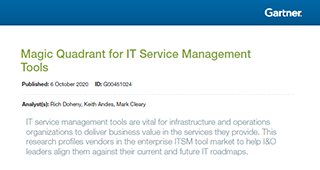Business organizations are revisiting their workforce strategies in response to digital transformation. DevOps and Agile SDLC environments encourage new roles, new team structures, and new hierarchies. While role distribution and the structure of functional teams differs across ITSM frameworks and processes, the types of functions adopted by IT teams remain consistent.
With these changes in mind, let’s look at the various types of it teams. Though titles and function description can vary from company to company, similar themes emerge.
Development teams
Dev teams focus on developing a feature, product component, or an entire project. The team may be assembled to solve specific technology problems and deliver a working solution, or they may follow an iterative, ongoing development process, such as in DevOps and Agile environments.
Development teams are usually not permanent. Groups of new cross-functional experts may be assembled to deliver subsequent release iterations or across different product features. While most organizations limit the size of individual teams, developers following DevOps and Agile SDLC frameworks tend to collaborate readily with cross-functional departments and teams.
Operations teams
IT Operations remains relevant despite the prevalence of cloud computing, infrastructure automation, and AIOps solutions. The complexity and importance of ITOps has increased in large-scale organizations and early Ops involvement is key to successful DevOps adoption.
Operations teams are responsible for making the IT infrastructure work and provisioning services necessary for rapid development sprints and feature release cycles. The teams are also responsible to ensure that organizational policies and ITSM principles are implemented across the development teams. Several roles in operations teams are permanent, especially those focused on infrastructure management, maintenance, and monitoring activities.
Quality assurance (QA) teams
These teams are assembled to ensure the quality of software delivered to end-users. QA teams are responsible for testing feature releases for quality issues and known and unknown bugs. The ‘quality’ piece of QA may refer to attributes like performance, security, cost, compliance, privacy, and risk.
The latest ITSM frameworks such as DevOps have blurred the lines between development and QA roles. While both functional teams are assembled independently with unique set of skills and expertise, they must collaborate early during the SDLC lifecycle to reduce waste processes and risk of releasing suboptimal products to end-users.
Support teams
These teams are dedicated to resolving technical issues facing IT users, including the internal workforce and external customers. Support teams work with ITOps personnel to ensure reduction and proactive resolution of IT incidents. Technologies such as chatbots and AIOps are reducing human involvement in both customer-facing support and backend infrastructure monitoring activities. These interactions, however, must be standardized and customer-focused and evolve to meet the changing technical and business requirements of the organization. Therefore, support teams may come from cross-functional departments and work closely with development and operations teams to meet these requirements.
Security teams
Cybersecurity is a critical concern for all organizations. ITSM security activities are often performed by a group of dedicated IT security professionals. Identity and access management and change approval processes are common domains of IT security teams in DevOps environments, where infrastructure and service provisioning is automated to facilitate rapid development sprints and release iterations.
Security teams work with many partners, including:
- Business executives to establish security protocols and policies
- Development teams to reduce potential bugs and security loopholes
- Operations teams to ensure that ITSM activities adhere to the organizational security policies
- The broader organization to deliver cybersecurity training and education
Process teams
These permanent teams focus on managing and improving IT systems to solve specific business problems. They may involve cross-functional experts working with Devs and Ops teams to reduce waste processes at the development stage or streamlining ITSM. Process teams may also collaborate with external service providers and customers as part of a process improvement project, since process teams typically own their projects end-to-end. DevOps organizations enhance the role of process improvement teams, starting with defining a process improvement project, managing implementation, and monitoring the change process.
Virtual teams
These teams are temporarily assembled and work closely with the organization remotely or from an off-site location, typically on a contractual basis. Virtual team members assist development, QA, Ops and security teams on tasks that can be performed without on-site presence. These teams complement the skills portfolio of the organization as needed, allowing for scalability. For large enterprises, virtual teams across disparate geographic locations may work collectively on similar projects. Assignments are typically limited to development or testing. For an external vendor engaged as a virtual team member, the task may not involve exchange of sensitive business information or mission-critical business tasks.
Organizational structures in “startup culture”
In organizations following traditional workforce structures, IT teams were focused on technology-alignment. Experts on specific technology domains worked independently on their focus areas. The result was a siloed working environment with IT teams following conflicting goals that compromised business outcomes. For instance, the goal for development teams was to push shiny new features to the market before their competitors. The goal for QA was to ensure each feature release was near-perfect in quality, security, and performance through concentrated development efforts.
The definition of teams and their types have evolved as large enterprises readily adopt the silicon startup culture of flat organizational hierarchy, quick decision-making, and rapid team restructuring. Organizational structures have not entirely disappeared but the job disciplines, roles, and functions of members across different types of teams are less restrictive in nature. Most progressive organizations inclined to flat hierarchal structures establish teams rich in cross-functional expertise. The result are reduced silos between different job disciplines and associated departments. Team members can come from diverse IT background and integrate multiple disciplines of the production chain. Devs, Ops, and QA share overlapping functional responsibilities that may evolve over the course of the SDLC.
Employees from other functional areas such as strategy, HR, marketing, sales, purchasing, and research may also be involved in IT-related decisions, interactions, and activities. It’s not that roles and obligations are no longer specified—instead, adherence to team formation and organizational structure has a new meaning as the startup culture prevails across organizations of all sizes.







